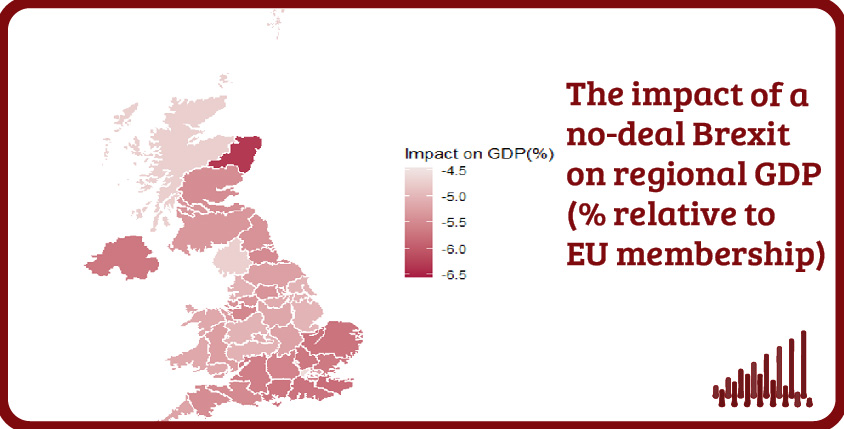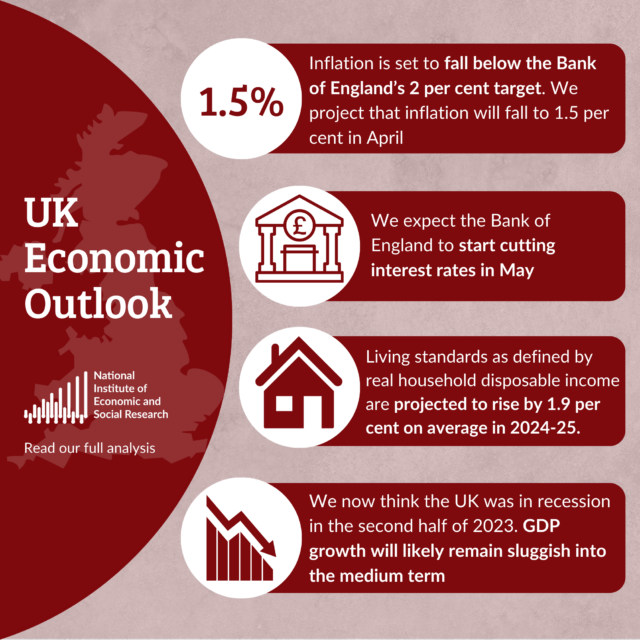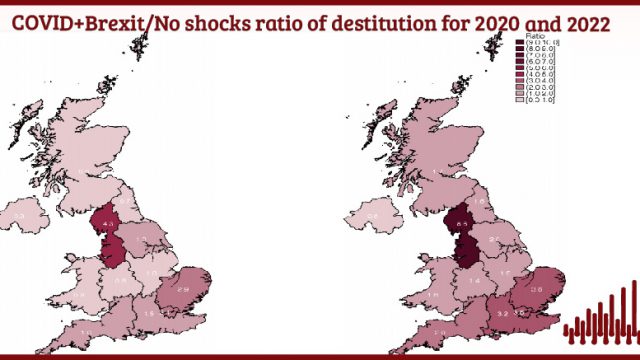- Home
- Publications
- NIESR Briefing: Industry And Regional Effects Of A No-Deal Brexit
NIESR Briefing: Industry and Regional Effects of a No-Deal Brexit
 Pub. Date
Pub. Date
 Pub. Type
Pub. Type

Authors
Related Themes
Productivity, Trade, and Regional EconomiesEver since EU exit has started featuring in the public debate, NIESR has contributed analyses of the long-run economic impact of different types of Brexit, including the deal proposed by the government in November 2018, a customs union deal and no deal. Since the EU referendum, NIESR has monitored the effects of uncertainty about the kind of exit on economic performance and highlighted policy trade-offs for various Brexit scenarios, including a no-deal exit. The production of this briefing was supported by the ESRC through its Impact Acceleration Award and it focuses on:
- The impact of Brexit so far on the UK economy as a whole
- New NIESR estimates (based like all our estimates on our economic model NiGEM) of the long-run economic impact of a no-deal Brexit on UK regions
- Possible policy responses to a no-deal Brexit
KEY TAKEAWAYS
- Brexit uncertainty explains a large part of the current lack of momentum in the UK economy through its impact on investment, alongside global economic weaknesses.
- NIESR estimates the UK economy will eventually be around 5 per cent smaller than it would otherwise have been if there is a no-deal Brexit.
- All parts of the UK are set to be poorer with a no-deal Brexit than they would have been if we had stayed in the EU. The worst affected parts of the country include North Eastern Scotland, Kent, Surrey, East and West Sussex and East Anglia.
- In the short run, the response of the economy to no deal depends on the level of preparedness of businesses and mitigating policy measures adopted by the government and Bank of England.
Read the full Briefing Note in attachment
Related Blog Posts

Exploring the Data on UK Productivity Performance
Issam Samiri
Stephen Millard
11 Dec 2023
4 min read

UK Investment Past and Prospects: A Framework for Analysis
Catherine Mann
01 Dec 2023
6 min read


Where Are We With Regional Inequalities in the UK?
Adrian Pabst
Jagjit S. Chadha
01 Nov 2023
5 min read
Related Projects
Related News


Related Publications


Productivity and Investment: Time to Manage the Project of Renewal
12 Mar 2024
UK Productivity Commission

Supporting Immigration Advice Amidst Financial Challenges: Local Authorities’ Funding Initiatives
29 Feb 2024
Topical Briefing

UK Households Should Start Feeling Better Off as Election Looms
07 Feb 2024
UK Economic Outlook
Related events

Investing for Growth: boosting productivity through higher public and private investment

The Outlook for the Welsh Economy

Prais Lecture with Chris Pissarides: The Future of Work and Wellbeing

A View and Prospects for British Investment

How Can We Raise Investment?

Productivity Commission Evidence Session: Examining the Role of International Investment

High Dimensional Forecasting and its Pitfalls – M. Hashem Pesaran

Finance and Growth Workshop







